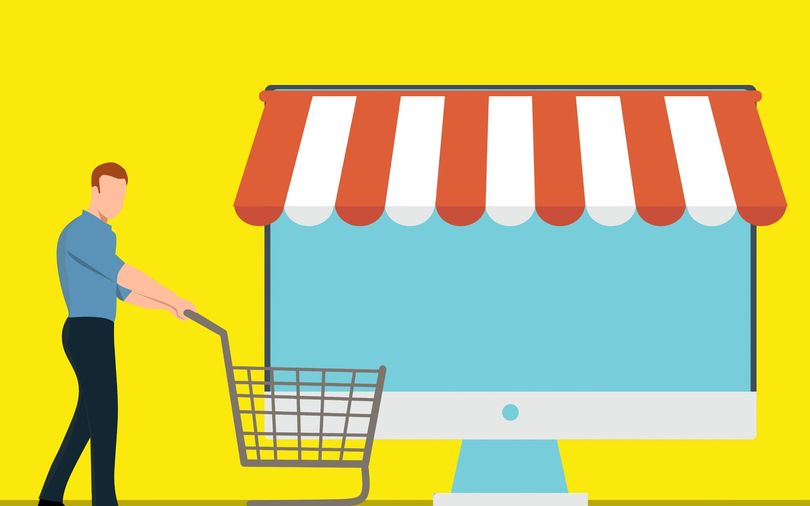
AI, analytics and a bit of common sense are fuelling BigBasket’s efficiency drive


BigBasket, the country’s best-funded online grocery startup, maintains 10 days worth of inventory. The industry average is about a month. Less is indeed more in this case as a lower inventory level helps save money and contain losses from perishable items such as fruits and vegetables. BigBasket wastes around 5% of perishables, which top engineers at the firm say is a global benchmark.
Founder and chief executive Hari Menon says these two elements alone bring down costs by about 3%, which could be crucial in a low-margin business like groceries.
So, what is the secret to BigBasket’s efficiency? Data analytics has something to do with it.

“Our predictive analytics have got so much better that we can predict the demands of the micro markets within the city accurately, even as overall sales have quadrupled over the last one year or so," Subramanian MS, head of analytics at BigBasket, told TechCircle.
The seven-year-old company has also deployed artificial intelligence (AI) and machine learning to throw up any anomaly in a customer's buying pattern or help make deliveries at the right address irrespective of from where the order may have been placed.
Behind the scenes, the company’s team of 150 engineers spread across two offices in Bengaluru have been building this backbone.

Along with Subramanian, engineering head Rakshit Daga and product & design chief Tejas Vyas told TechCircle that BigBasket has automated its systems to flag anything out of place in the 30 cities in which the startup operates.
For instance, BigBasket's self-built engineering systems found that no new customers were signing up from one particular area for a month and immediately alerted the technology team.
"We found that it was a case of one set of addresses from the locality wrongly identified as from another locality and we fixed it immediately," Vyas said.

Attention to detail
Backed by Chinese e-commerce giant Alibaba, BigBasket is bracing for intense competition as e-commerce giants Flipkart and Amazon are increasingly stepping up their presence in the segment. Old rival Grofers is also catching up. Big Basket's top management knows that technology will be key to staying ahead. They are also aware that location is the most important factor in retail.
Marking the location and gaining insights about every delivery have been priorities. The firm seeks optimum route mapping so that its trucks travel the least possible distance to make as many deliveries as possible.
"Clustering orders for deliveries makes a lot of difference to profitability," said Daga.

But unlike ride-hailing firms such as Ola and Uber, BigBasket cannot fully rely on GPS-based location services.
"The address could be the same apartment complex but the door number makes a huge difference. While a cab can wait at the front gate, we need to deliver right at the doorstep," said Vyas.
But once a delivery is made to a particular address for the first time, BigBasket uses data to ensure it never has to call the customer again to confirm these details.

Data has also helped the company create a personalised shopping basket for customers at regular intervals. Around 20% of BigBasket customers are already using the feature, which is called Smart Basket.
“Often around 90% of the customer's final order will be already part of the Smart Basket. Our data shows that these customers now spend only half the time they normally would to place an order," said Subramanian.
He added that this helps the company too as customers spend more time on discovering newer products, which in turns helps increase the value of the overall orders.

BigBasket's machine learning algorithm is also getting better, said Subramanian. Now, customers add around 40% of recommended products to their cart.
Spotting the signals
Despite the success of these technology-based initiatives, the three BigBasket executives insist that it is not just data and artificial intelligence at play here.
"The founder's vision is instrumental in understanding what and how to read the signals from data while developing a product," Vyas said.
BigBasket was founded by a team of five—VS Sudhakar, Hari Menon (CEO), Vipul Parekh, V Ramesh and Abhinay Choudhari. Other members of the senior management are also putting their combined experiences to good use. Daga enjoyed a long tenure as technology head at SAP, Subramanian was director of analytics at Dell while Vyas worked with TCS.
Daga said that it was the founders who had spotted the same-day delivery trend and thought of free delivery for delayed shipments.
“Their common sense trumped everything else," he said.
BigBasket earlier charged many of its customers Rs 30 for one-day delivery. In an experiment earlier this year, it gave customers the option of splitting the grocery basket. This involved expediting one part of the order to be delivered earlier and the rest to be delivered later. Both baskets could be delivered free of cost.
"Within a couple of months, the majority of customers started opting for the programme," said Subramanian.
While BigBasket said that this initiative had helped save customers' money, it didn’t provide estimates on how the use of technology had helped its finances. The firm had posted an increase in its combined net loss for front-end and back-end operations to Rs 844.6 crore for 2016-17, up from Rs 380 crore a year earlier. However, both operations managed to more than double their revenues. BigBasket's financial statement for 2017-18 is not yet available.
